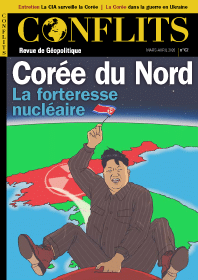Edward Mickolus’s works are a valuable resource for those studying terrorism. Review of his latest publications.
The scientific study of terrorism is largely dependent on access to reliable, comparable data sets covering the longest possible periods. Currently, only two easily accessible databases allow research in this field: the Global Terrorism Database maintained by the University of Maryland[1], and ITERATE (International Terrorism: Attributes of Terrorist Events) created by Edward Mickolus, which dates back to 1968. The latter database, which exists in digital format and in paper form as books, offers a range of information that is difficult to find elsewhere, let alone collected in a single volume.
It is therefore with interest that we await the publication of the latest edition of Terrorism Events Worldwide, which this time covers the years 2023 and 2024. Among the reasons why this publication deserves to be known, the following three can be cited.
First, at the beginning of each volume, Mickolus presents a brief summary of the main trends of the year, albeit from a perspective closely linked to that of the United States (which is to be expected from a former CIA executive), but usefully covering issues such as the evolution of certain entities resorting to terrorism, the fate of some important actors and, above all, remarkable innovations in recent terrorist activity.
Next, terrorist attacks, especially international ones, broken down by country, are described after listing the source (usually a news agency or identifiable media outlet). For each incident, basic information is therefore available, as reported by the media in real time. As a result, reading the entries devoted to each country provides a good initial idea of the nature and intensity of terrorist activity there. In this respect, one could almost suggest that these volumes are, for the terrorism researcher, a good complement to the tourist guides that they consult when choosing a travel destination…
Finally, and this is a valuable addition, at the end of each volume there is a section devoted to updating the data contained in previous editions. For example, in this latest volume, there is information on France concerning the trial following the beheading of Samuel Paty on 16 October 2020 (pp. 273-274).
Thus, in its design and content, Mickolus’s work does not duplicate any other documentary undertaking on terrorism, and enriches the discussion with carefully compiled information. Added to this is a short bibliography containing references not exclusively in English, which is rare enough to be worth mentioning.
[1] For our use of this resource, see: Daniel Dory; Hervé Théry, ‘L’approche géographique du terrorisme : questions de méthode’ (The geographical approach to terrorism: questions of method), L’Information Géographique, Vol. 86, 2022, 29-48.











